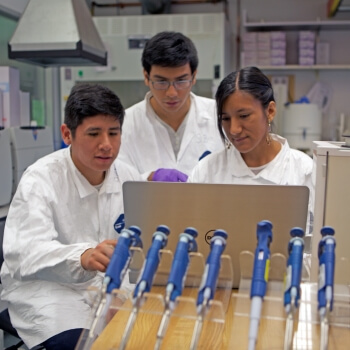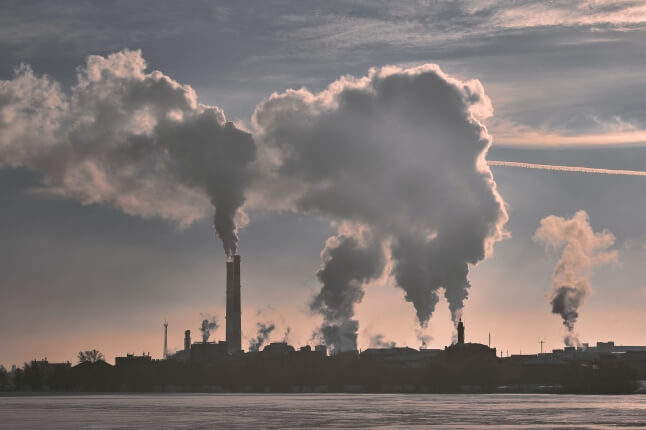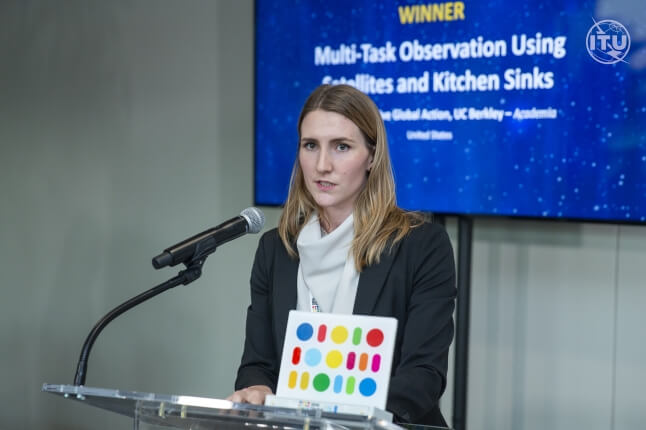News
Peruvian engineering students Carlo Montoya, Jean Inga, and Karina Vasquez analyze data in the SEAS Active Learning Labs. (Photo by Adam Zewe/SEAS Communications.)
Each year, an estimated 30 to 40 tons of mercury are illegally dumped into the environment in Peru’s pristine Madre De Dios region by miners extracting gold from the Amazon River basin.
This summer, a group of engineering students worked in research labs at the Harvard John A. Paulson School of Engineering and Applied Sciences (SEAS) to study more environmentally friendly gold extraction methods.
The six students from the Peruvian school Universidad de Ingeniería Y Tecnología (UTEC) who visited SEAS in August are part of an ongoing, collaborative program between the two schools. A team of Harvard and UTEC students was challenged to design tools that can clean the polluted river water that flows through Madre De Dios. Students from SEAS traveled to Peru in January, joining forces with UTEC peers to prototype three devices: a water filter that uses cilantro to remove heavy metals, a turbine-driven centrifuge to remove large particulates, and an electromagnetic filtration system.
During the summertime segment of the exchange program, UTEC students worked in the SEAS Active Learning Labs and in the lab of Chad Vecitis, Associate Professor of Environmental Engineering, to develop and test a gold dissolution method using iodine. With Vecitis and Joost Vlassak, Abbott and James Lawrence Professor of Materials Engineering, as SEAS faculty advisors, the students also explored the potential use of an electrochemical flow cell to recover gold from the iodine solution.
One team of students conducted tests to determine the optimal iodine concentration, iodine to iodide ratio, and stirring rate to maximize the amount of gold dissolved. Another team applied different voltages to an electrochemical cell to ascertain the ideal voltage for extracting the maximum amount of gold and iodine. Extracting and recycling iodine was an important goal, since the chemical is expensive.
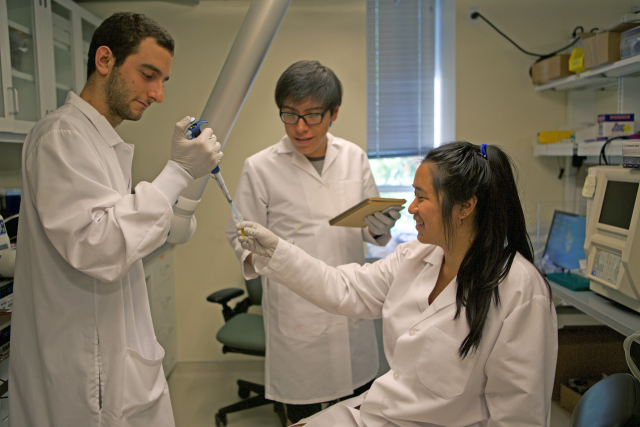
UTEC students Sergio Bugosen, Lauren Wong, and Sebastian Salas conduct an experiment in the Vecitis Lab at SEAS. (Photo by Adam Zewe/SEAS Communications.)
Environmental engineering student Sebastian Salas said that working together in the Vecitis lab taught team members about the importance of precision when running tests. Though they ran into several problems with the electrochemical filter, such as fouling issues that arose from a titanium electrode, the team was able to troubleshoot solutions.
Those hands-on lessons are vital for aspiring engineers, said Juan Carlos Rodriguez Reyes, Research Professor of Chemical and Industrial Engineering at UTEC.
“I want our students to develop an awareness of these critical environmental issues,” Rodriguez-Reyes said. “This program also helped them learn about experimental design, critical thinking, and to be selective in deciding what they want their research to accomplish.”
Environmental engineering student Lauren Wong enjoyed working in the state-of-the-art labs at SEAS. Being able to develop new skills, make new friends, and be immersed in a different culture has been a tremendous opportunity, she said.
“I feel a lot of satisfaction that we could create a change with our efforts,” she said. “This research could help people in our own country, as well as people living in countries all over the world where illegal mining is a problem.”
In addition to giving students engineering design experience, the UTEC-Harvard partnership brings awareness to the devastating environmental impacts of illegal mining, said Vlassak. While there is still a lot of work to be done , the student project is a good first step, he said.
“Illegal mining is a hugely important problem in Peru. I am hoping this will be a starting point to do more research at Harvard and UTEC to see if this is a feasible solution,” he said. “The potential impact is tremendous.”
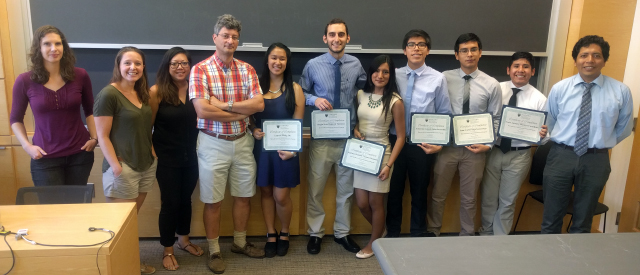
Topics: Environment
Cutting-edge science delivered direct to your inbox.
Join the Harvard SEAS mailing list.
Press Contact
Adam Zewe | 617-496-5878 | azewe@seas.harvard.edu
